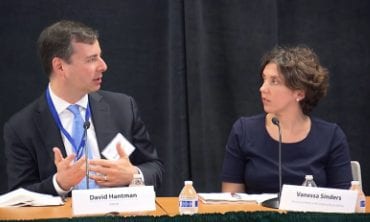In June, the Federal Trade Commission held a workshop to explore issues relating to the “sharing” economy, including economic activity, competition, and benefits and risks to consumers.
Following the workshop, the FTC continued to accept public comments through August 4, 2015.
During this time over 2,000 comments were submitted from state and national associations representing hoteliers and Bed and Breakfasts, the National Limousine Association, Professional Association of Innkeepers International, several universities, Lyft, Uber, Airbnb, the AH&LA, Airbnb hosts, Uber drivers, and many more. Read the comments submitted to the FTC by Airbnb.
In addition, Matt Curtis, Director of Government Affairs for HomeAway and board member for Vacation Rental Managers Association (VRMA) also submitted comments on behalf of the VRMA saying “The VRMA is working productively with local governments across the country to address tax collection and land use uses by educating property managers and owners on local laws, and government.”
During the FTC workshop, the afternoon panel provided a robust debate between David Hantman, Head of Public Policy at Airbnb, and Vanessa Sinders, Senior Vice President and Head of Government Affairs and the American Hotel and Lodging Association (AH&LA).
In his opening remarks, Airbnb’s David Hantman said (1:01 in video), “There is a balance to be struck here to differentiate between businesses and individuals. People doing something once in while with their own property to make ends meet is something very different than someone doing it full-time as a business, in multiple locations, or multiple cars, and I think it’s important to get into those differences here today.”
AH&LA’s Vanessa Sinders fired back:
This is a clear indication that Airbnb is making a substantial amount of its revenue off of illegal hotels and those that are doing this as a business. These are not mom-and-pops.
These are individuals and companies operating multiple properties as a business. These are not students making ends meet. They are rogue commercial interests. They are simply illegal hotels, and they should have to meet the regulatory obligations of the jurisdictions in which they operate as hotels do, to protect the health, safety, and well-being of their guests, as well as the safety, and security, and character of the neighborhoods in which they operate.
Simply put, we believe that if you look like a hotel and if you act like a hotel, then you should be treated like a hotel.
Hantman (Airbnb) responded:
If you look like a hotel, and you act like a hotel, maybe you should be treated like a hotel. But more than 90% of our people in New York, for instance, have only their own home that they list …the fact that there are a small number of people who go across these sites with multiple listings, many of whom we’ve already taken off, the vast majority of people doing this are in the sharing economy, earning a few thousand a year, and we should be figuring out what to do with those people. And so our tools are designed to help them develop this trust between each other.
Within the first few moments of the discussion at the FTC Workshop, Airbnb and AH&LA were able to agree to differentiate between individuals renting their primary residence for extra income and “rogue commercial interests” –“many of whom we’ve (Airbnb) already taken off (of the site).”
Later in the discussion (1:44 in the video), when the moderator asked about zoning and restrictions, Airbnb’s Hantman again distinguished between the two saying, “So again, I think we get right into that difference between people doing this once in a while in their own home, and people who do this for a living, whether it’s multiple listings in a building, multiple listings throughout a city, or just doing it around-the-clock, even in one listing. I think if you look at what’s really happening out there, most of these people do it once in while. We feel pretty strongly that that’s not a business, and so, if it’s a residential zoned area and someone is renting out their apartment when they’re away on vacation for a week a year, that shouldn’t change and doesn’t change the nature of that listing.”
Hantman continued, “We’ve advocated pretty consistently around the world for a few years now, just to exempt people in their primary, and maybe, in some circumstances, secondary homes. We don’t argue that people should be able to have 50 listings.”
Sinders responded, “I don’t think we’re talking about the individual who rents out his or her home a few times a year…What we’re talking about is large commercial interests basically creating rogue hotels and skirting the commonsense rules, regulations, and privacy rights.”
Hantman followed up saying, “If you listen carefully, it sounds to me like we’re agreeing, right? I mean, we are also not talking about rogue hotels, or defending rogue hotels, or a law passed to do anything other than punish rogue hotels.”
While most vacation rental providers do not consider themselves illegal hotels, as many envision an illegal hotel as a commercial group who has purchased several urban apartments in a single building and are operating them as short term rentals.
However, by the definition of “people who do this for a living” provided by AH&LA and Airbnb to the FTC and to the League of Cities, professional vacation rental managers were characterized as illegal hotel operators at the workshop.
Related: The Important Role of Owner Service Providers in the Sharing Economy
Hantman added, “I do think we (Airbnb and AH&LA), in general, agree. Most people agree that homesharing should be legal. Most people understand that there’s a difference between people doing this once-in-a-while in their own home and doing it as a business. Government, after government, after government are making those distinctions, and will continue to do so.”
By Amy Hinote



If it were not for overbearing government regulations there would not be this conversation. Cant we all just share -and charge for it- and no one gets hassled by the government